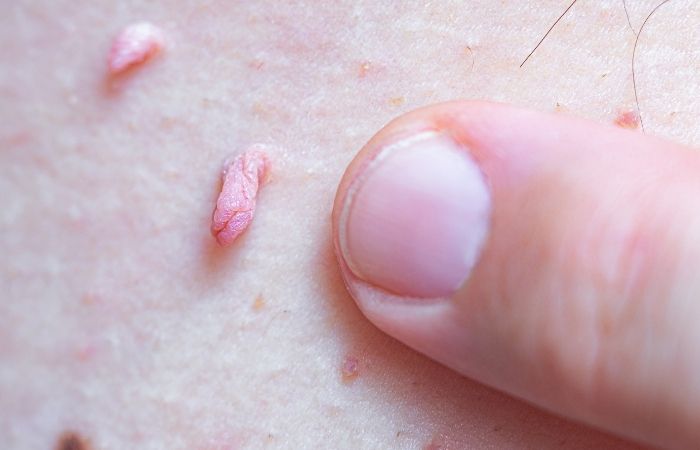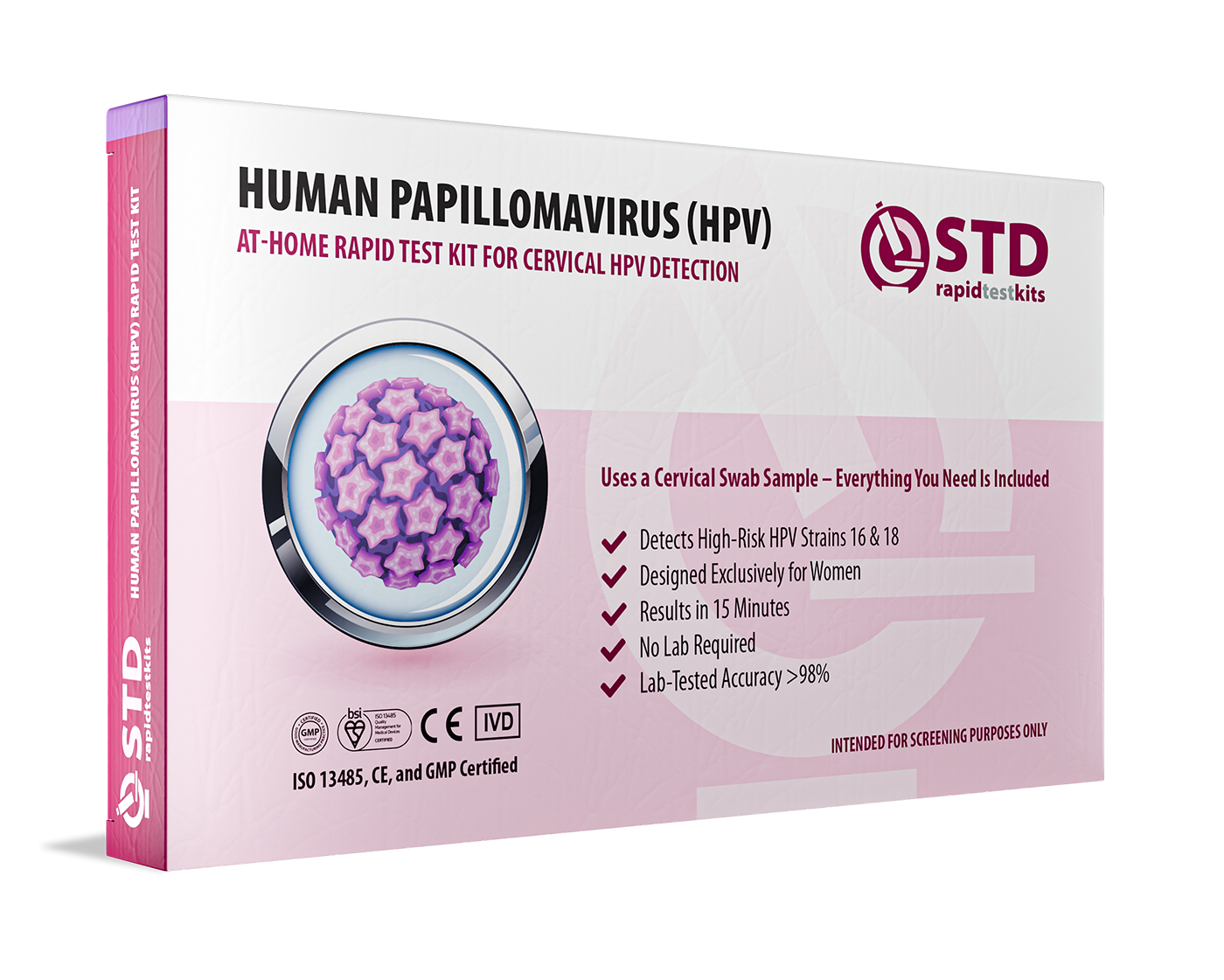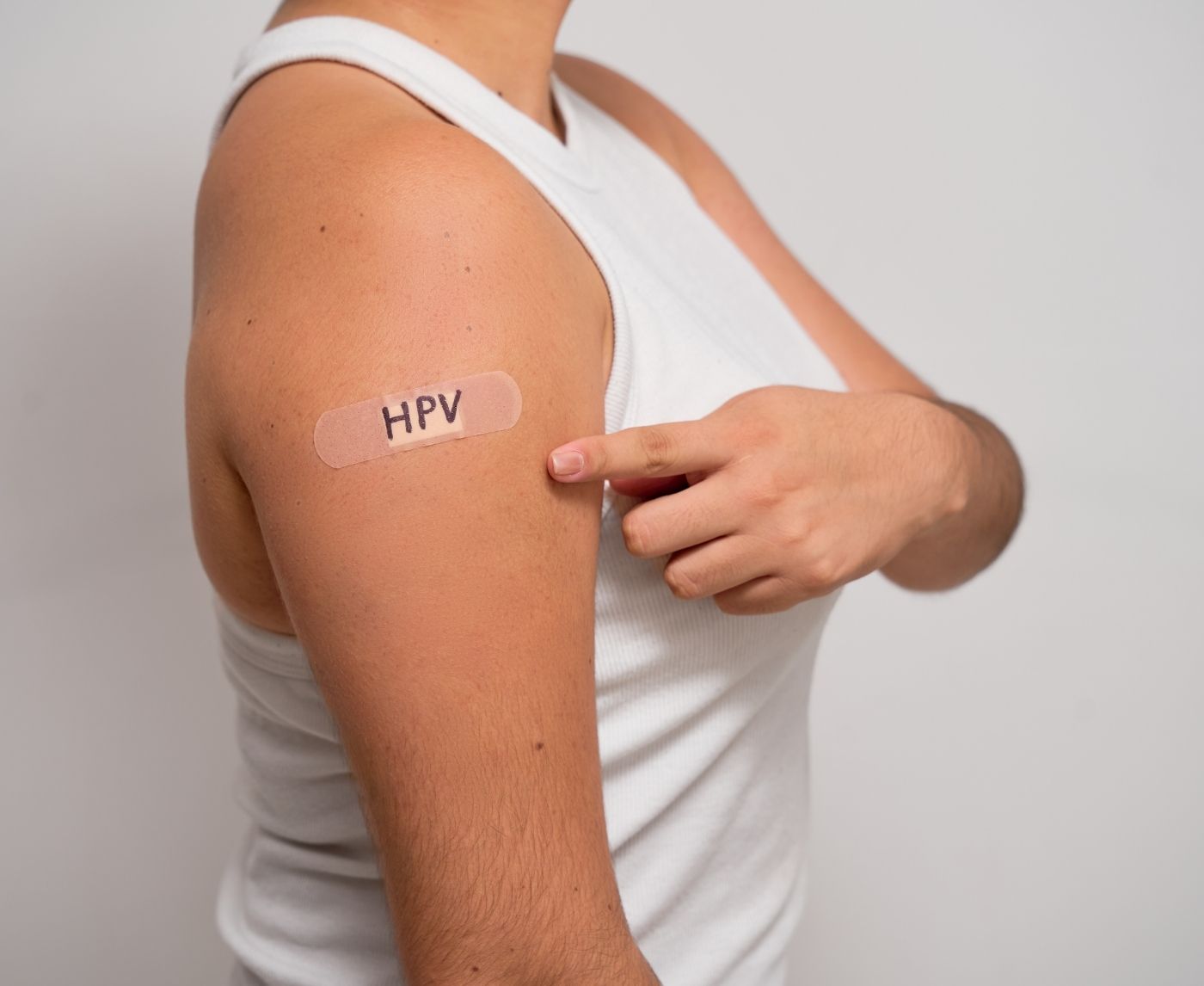HPV in Men: Why Testing Still Doesn’t Exist, And What You Can Do
The Most Common STD You’ve Probably Never Felt
Here’s the reality: about 80% of sexually active people will contract HPV at some point in their lives. Most never know it. Why? Because HPV is a stealth virus. It doesn’t always cause warts. It doesn’t always show up on standard STD panels. And unless you're specifically screened, usually through a pap smear, HPV DNA test, or throat biopsy, you may never realize it's there.
There are over 100 strains of HPV. About 40 affect the genitals, and a handful are considered “high-risk,” meaning they’re linked to cancers of the cervix, vulva, penis, anus, and throat. Others are low-risk but still contagious, often causing genital warts. And the most frustrating part? Most people pass it on without knowing they even have it.
HPV Can Infect Places You’ve Never Checked
Think HPV is just about genital warts? Think again. This virus can settle into areas that most people never associate with STDs:
- Throat (Oropharyngeal HPV): Transmitted through oral sex, this form is on the rise, especially among men.
- Anus: Anal HPV is common in both straight and queer populations and often goes undetected until abnormal cells are found.
- Cervix: The most dangerous strains live here silently, sometimes for years, slowly changing cells into precancerous lesions.
You won’t feel HPV enter. You won’t smell it, see it, or necessarily get sick right away. That’s what makes it such a slippery threat, it hides in plain sight.

People are also looking for: How soon after sex should I test?
HPV in Men: The Invisible Risk
Let’s talk about something wildly under-discussed: HPV in men. Unlike women, who are routinely screened through pap smears, men have no standard screening method. That means even if you’ve been diligent about testing, you may have never been offered an HPV test, especially if you don’t show symptoms.
HPV in men can cause:
- Penile or anal cancer (though rare)
- Genital warts
- Throat cancer from oral HPV
According to JAMA Oncology, nearly 1 in 3 U.S. men aged 18–59 are infected with genital HPV, and 70% of oropharyngeal cancers in men are now linked to HPV. Yet most have never been told to test for it, or that it’s even possible.
HPV Testing Isn’t Routine, But It Should Be
If you’ve had a pap smear, you might assume you’ve been tested for HPV. Not always true. Many providers only order the HPV test if you’re over 30 or have abnormal results. Younger patients and men? Often skipped entirely.
Here’s how HPV testing breaks down:
- Pap smear: Detects abnormal cervical cells but not HPV directly
- HPV DNA test: Looks for high-risk HPV strains
- Anal/throat swabs: Not standard, must be specifically requested
If you're not asking for it, you’re probably not getting it. That’s why at-home HPV test kits are changing the game, especially for people who don’t fit into traditional screening categories but still want answers.
Check Your STD Status in Minutes
Test at Home with RemediumPapillomavirus (HPV) Test

 For Women
For Women Results in Minutes
Results in Minutes No Lab Needed
No Lab Needed Private & Discreet
Private & DiscreetOrder Now $33.99 $49.00
The Vaccine Doesn’t Cover Everything (But It’s Still Worth It)
Yes, the HPV vaccine is incredible. It protects against the most dangerous and wart-causing strains, but not all of them. Gardasil 9, the most common vaccine, covers 9 strains. There are over 100.
If you were vaccinated as a teen, you still might catch a non-covered strain later in life. If you weren’t vaccinated at all, the window hasn’t closed. The CDC now recommends vaccination for anyone up to age 45, depending on risk factors.
But vaccination ≠ immunity from testing. If you’re sexually active, especially with new or multiple partners, it’s smart to check your HPV status, regardless of vaccine history.
What Doctors and Researchers Wish You Knew About HPV
“Most people think HPV is either cancer or warts,” says Dr. Leena Morris, an OB-GYN specializing in STI prevention. “But that’s like saying the flu is just a cough. HPV is a spectrum, it can be nothing, it can be devastating, or it can be somewhere in between.”
Experts now believe we’ve vastly underestimated the long-term emotional and physical toll of HPV, not because the virus itself is always dangerous, but because our silence around it is. According to The Lancet, patients diagnosed with HPV often report intense shame, confusion, and anxiety, despite the fact that the vast majority of infections clear on their own within 1–2 years.
“If we talked about HPV the way we talk about colds or the flu, people would be less afraid, and more likely to get tested,” says Dr. Morris. “Right now, we’re failing both emotionally and clinically.”
Stats That’ll Change How You See HPV
Let’s hit pause on panic and focus on facts:
- 79 million Americans are currently infected with HPV (CDC).
- About 14 million new infections occur each year, many in teens and young adults.
- Over 90% of cervical cancers are caused by high-risk HPV types.
- But, 90% of HPV infections clear up without treatment within two years.
So yes, HPV is linked to cancer. But no, most people won’t develop it. The key is knowing your status and catching abnormal cell changes early, before they turn serious. That’s what testing is for. That’s what vaccines help prevent. That’s what taking your sexual health seriously looks like.

People are also looking for: Will a doctor judge me if I ask for an STD test
The Future of HPV Testing (It’s Coming Home with You)
One of the most exciting shifts in sexual health right now? At-home HPV testing. Just like STI test kits for chlamydia or HIV, you can now test for HPV using a discreet, reliable kit mailed to your door. No stirrups. No waiting rooms. No awkward explanations.
These tests use self-collected vaginal or cervical swabs, then screen for high-risk HPV strains through PCR or DNA analysis. Some even offer options for anal or throat testing, areas often ignored in clinical exams.
At-home testing helps:
- People without health insurance
- LGBTQ+ folks who face discrimination in clinics
- Men who want to know their risk but aren’t routinely offered HPV tests
If you’ve never been tested, or if you’re overdue, it might be the simplest, least stressful way to get real answers.
If You Test Positive: Now What?
First of all, don’t freak out. HPV is not a moral verdict. It’s a virus. If you test positive, you’re far from alone, and you have options.
Here’s what to do next:
- Follow up with a provider: Especially if you have high-risk HPV or abnormal cells on a pap test.
- Monitor regularly: You may need annual testing or a colposcopy (a closer look at the cervix).
- Tell partners if relevant: HPV isn’t a required disclosure by law, but it’s worth a convo, especially if there’s a cancer risk or visible warts.
- Take care of your immune system: Quitting smoking, managing stress, and maintaining a healthy lifestyle helps your body clear HPV faster.
Most HPV infections don’t need treatment, they just need time and a watchful eye. But knowing you have it? That’s where your power begins.
How HPV Is Forcing the Sexual Health Industry to Grow Up
For years, the conversation around HPV was all pink ribbons and pap smears, useful, but limiting. Now, we’re seeing a shift. HPV is finally being recognized as a virus that affects all genders, all ages, all orientations.
Health startups are racing to meet demand for at-home cervical screenings, throat swabs, and anal HPV tests. STI education is starting to reflect realities beyond the female cisgender experience. Medical guidelines are expanding testing protocols and normalizing lifelong monitoring, not just panic-mode pap results.
And most importantly, people are talking. On Reddit. On TikTok. In group chats. HPV isn’t the shame-ridden secret it used to be, and that’s thanks to a new generation refusing to let silence do more harm than the virus itself.
Check Your STD Status in Minutes
Test at Home with Remedium10-in-1 STD Test Kit

 For Women
For Women Results in Minutes
Results in Minutes No Lab Needed
No Lab Needed Private & Discreet
Private & DiscreetOrder Now $189.00 $490.00
For all 10 tests
Real Talk: Living with HPV Isn’t a Life Sentence
“Maya, 28” got an abnormal pap smear during a routine checkup.
“I wasn’t even worried, I’d never had an STD, never had symptoms,” she said. But when the follow-up revealed high-risk HPV, her world cracked open. “The nurse just said, ‘Don’t worry unless it turns into cancer.’ That didn’t exactly help.”
She spent weeks spiraling until she found an online support group.
“That changed everything,” she said. “I learned HPV is normal. I wasn’t gross, I wasn’t unsafe, I was just human.” After two years of monitoring, her body cleared the virus. “I wish someone had told me that from the start.”
“Jared, 34” never imagined HPV could affect him.
“I thought it was a women’s issue. But then I got a throat cancer diagnosis linked to HPV. I’d never even heard of oropharyngeal HPV before.” He now advocates for better education for men, especially around oral sex risks. “If someone had just said, ‘You’re not immune,’ I would’ve gotten vaccinated and tested years ago.”
FAQs
1. Can HPV show up in the throat?
Yes. Oral HPV can infect the throat and is linked to certain cancers, especially in men.
2. Does HPV always cause symptoms?
No. Most HPV infections are symptomless and go undetected unless tested for.
3. How do you get HPV?
Through vaginal, anal, or oral sex, and even skin-to-skin genital contact without penetration.
4 Can men get tested for HPV?
There’s no standard test for men, but at-home throat and anal swab tests are becoming available.
5. Does HPV go away?
Yes. Most cases clear naturally within 1–2 years, especially in people under 30.
6. Should I tell my partner I have HPV?
It’s not legally required, but disclosure is encouraged, especially for high-risk strains.
7. Can I get HPV more than once?
Yes. There are multiple strains, and immunity isn’t guaranteed after infection.
8. Do condoms prevent HPV?
They reduce risk but don’t eliminate it entirely, since HPV can spread from skin not covered by condoms.
9. What’s the difference between a pap smear and an HPV test?
Pap smears detect abnormal cervical cells; HPV tests detect the virus itself.
10. Where can I get tested for HPV discreetly?
Right here: Use this at-home HPV test kit to find out safely and privately.
HPV Doesn’t Define You
HPV can show up anywhere, or nowhere. It can stay silent for years, or it can scream through a biopsy result. But it doesn’t make you dirty, damaged, or dangerous. It makes you human. If there’s one takeaway here, it’s this: HPV is common, but that doesn’t mean you should ignore it. Testing gives you power. Vaccines give you protection. And talking about it gives you peace of mind.
Sources
3. Mayo Clinic – HPV Infection










